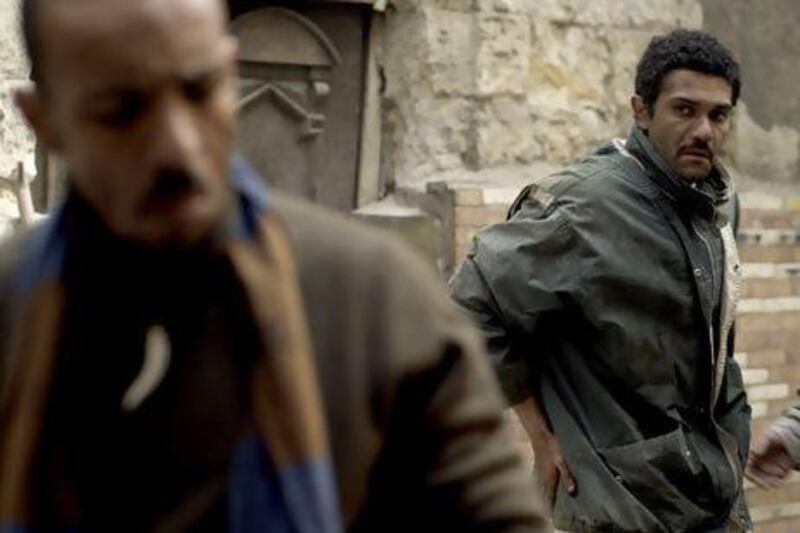His last film Microphone, screened to a packed audience at the Dubai International Film Festival in 2010, looked at the underground youth scene in Alexandria and the often comical efforts made by artists and musicians to get around issues of censorship to perform.
Three years and two governments later, Ahmad Abdalla – one of the rising stars on the independent filmmaking scene in Egypt – is preparing to unveil his third film at the Toronto International Film Festival.
Where Microphone was frenetic and vibrant, Rags and Tatters, set during the 2011 revolution, has little dialogue, with cinematography as the main storytelling feature. Abdalla, who volunteered in Tahrir Square at a Media Camp where footage from protesters was collected and distributed internationally, drew on these experiences, shooting the film on camcorder so it would resemble the amateur videos that were made at the time.
What can you tell us about Rags and Tatters?
We’ve been working on this film since April last year. It’s about a guy who finds himself freed from prison during the first few days of the revolution. It’s not related directly to the revolution but when the prisons are opened, he finds himself on the streets. We follow him over three days into different situations.
Who stars in the film?
Aser Yassin plays the main character. But many of the other actors are real people because we wanted to make people think about the condition of their lives.
How easy has it been since the 2011 revolution for independent filmmakers such as yourself?
It’s actually been getting harder and harder. The main issue is security. The places in the film are just not as safe as they used to be and the police haven’t been doing a great job of keeping us secure. We filmed in isolated places outside Cairo. In some neighbourhoods you have zero protection. When you own or rent equipment, you can’t afford to have anything go wrong on location.
What about the permission to film?
We had a problem with this, too. We wanted to film in a mosque but they said no, and wanted to see the script to make sure there was nothing against Islam in the film. So I told them: “It’s not your mosque, the mosque belongs to everyone.”
If more areas of government start asking for censorship rights of their own, it’s going to be dangerous. In the end, we refused and had to shoot in a mosque belonging to the Ministry of Tourism. It’s not a real mosque, just for tourists, so I had to recreate everything. It was very expensive and not how I wanted it.
The Muslim Brotherhood was often charged with having no interest in film. Would you agree?
Of course they didn’t care. I don’t think culture was one of their priorities. We usually have, for example, a big book fair. It’s one of the biggest in Africa or the Middle East I believe. But this year it was very small, maybe just 10 per cent of what we used to have. We can’t depend on the government anymore. We have to do it ourselves.
After the 2011 revolution there was a lot of hope for filmmaking. Is it still there?
We still have hope, we’re still walking on this road. There are a lot of new, independent and female filmmakers emerging. Independent cinema is part of a social movement that is taking place now in Egypt. The whole scene is changing, which is a very good thing.
• Rags and Tatters will be screened on September 9, 10 and 13 at the Toronto International Film Festival. For details, visit tiff.net/filmsandschedules/festival/2013/ragsandtatters
Follow us
[ @LifeNationalUAE ]
Follow us on Facebook for discussions, entertainment, reviews, wellness and news.





